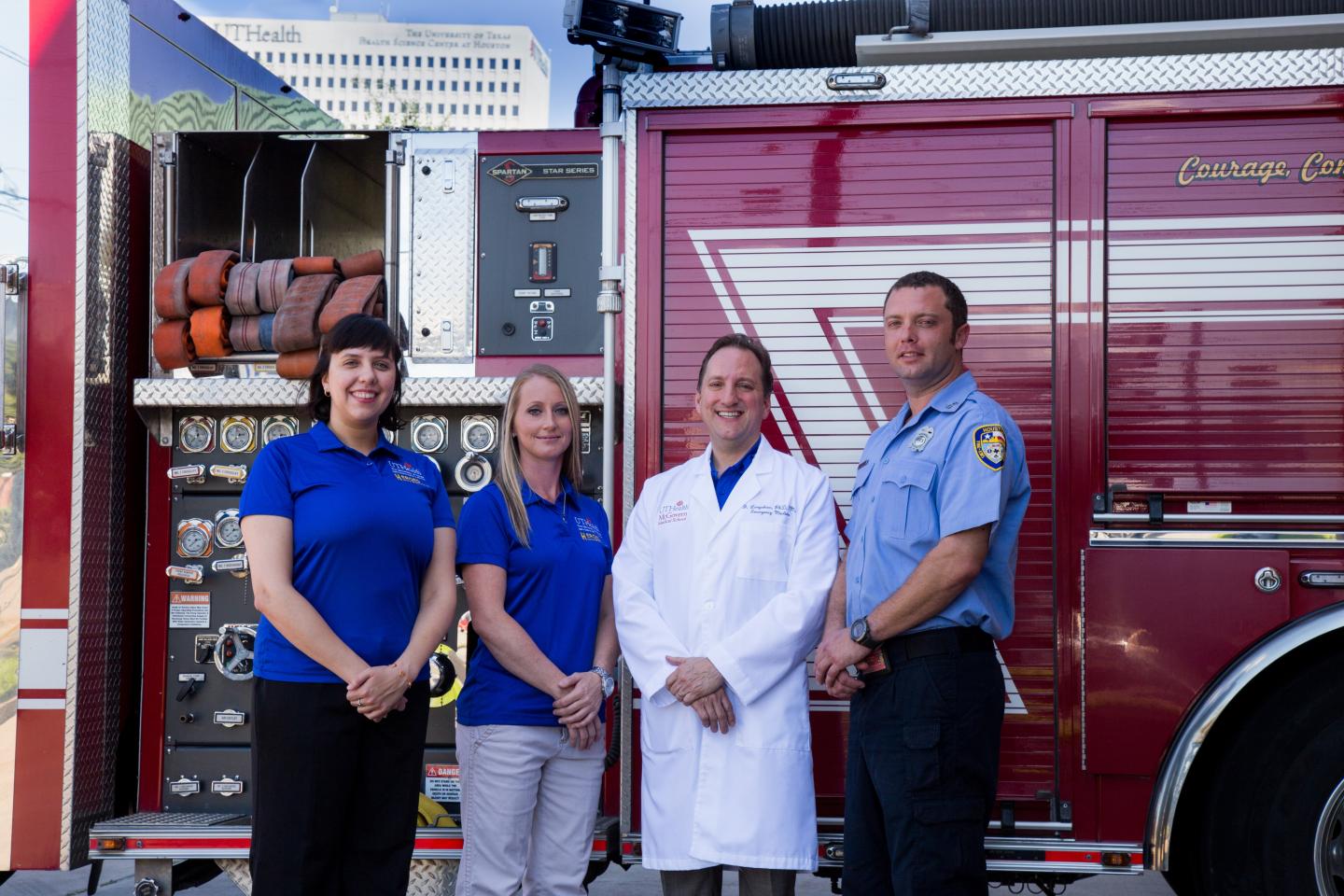
Credit: Photo by Maricruz Kwon/UTHealth
The Houston Emergency Response Opioid Engagement System (HEROES) was recently awarded two grants that will help fund the opioid intervention program through the end of 2020. James Langabeer, PhD, MBA, a professor at The University of Texas Health Science Center at Houston (UTHealth), created the program to provide comprehensive treatment for opioid abusers, gain a more thorough understanding of the epidemic in Houston, and work toward getting the highly addictive drugs off the streets.
Based on the program’s success since its inception in the spring of 2018, HEROES was granted $1.85 million from the Texas Health and Human Services Commission (HHS) to continue its mission. HHS received the funding from the Substance Abuse and Mental Health Services Administration, a federal agency, to allocate for state opioid response grants. HEROES was also awarded $350,000 from the U.S. Department of Justice.
According to research gathered through the program, Harris County sees about 150 opioid-related overdoses every month, resulting in an average of 20-25 deaths.
“The opioid epidemic in Houston is more grave than many would like to admit,” said Langabeer. “HEROES allows us to collect meaningful data to understand the scope of the problem, while also practicing what we call ‘assertive outreach’ to offer a solution for people struggling with addiction. The opioid crisis does not discriminate – we see people of all ages, races, and ZIP codes, and we’re able to offer them a tangible way to get help.”
The HEROES program is a joint initiative between the School of Biomedical Informatics and McGovern Medical School at UTHealth, which partners with the Houston Fire Department, Houston Police Department, and Memorial Hermann-Texas Medical Center. Overdose data from Harris County is used to guide a quick-response team, including a paramedic and recovery coach, who knocks on doors and offers people who have just recovered from an overdose the opportunity to enroll in a comprehensive treatment program at no cost to them.
“Most people struggling with an opioid addiction fight it alone, and will not proactively seek help. We remove that barrier by bringing help to them, and for many it is the first time they’ve been presented with a feasible option to seek recovery,” said Langabeer.
Currently, there are nearly 150 patients in the clinical trial, and about 75 percent of them have been drug-free and remained engaged in treatment for more than 30 days. Treatment through the HEROES program includes access to opioid overdose reversal medication, a 24/7 recovery coach, behavioral counseling with an addiction counselor, weekly support groups, help connecting to county resources, and more.
The new funding will help the program grow its staff and network of partners to further combat the opioid epidemic.
“We intend to expand our reach and offer comprehensive services to a larger patient base across Southeast Texas,” said Langabeer. “The team is considering implementing a variety of new services as well, including a recovery mobile app to help improve our communication with patients. We also hope to use the data we’ve collected to improve health policy across the state and nation related to drug use and addiction.”
###
For more information or to enroll in the HEROES program, email [email protected] or call 713-500-3597.
About UTHealth
Established in 1972 by The University of Texas System Board of Regents, The University of Texas Health Science Center at Houston (UTHealth) is Houston’s Health University and Texas’ resource for health care education, innovation, scientific discovery and excellence in patient care. The most comprehensive academic health center in the UT System and the U.S. Gulf Coast region, UTHealth is home to Jane and Robert Cizik School of Nursing, John P. and Kathrine G. McGovern Medical School, and schools of biomedical informatics, biomedical sciences, dentistry, and public health. UTHealth includes The University of Texas Harris County Psychiatric Center, as well as the growing clinical practices UT Physicians, UT Dentists, and UT Health Services. The university’s primary teaching hospitals are Memorial Hermann-Texas Medical Center, Children’s Memorial Hermann Hospital, and Harris Health Lyndon B. Johnson Hospital. For more information, visit http://www.
Media Contact
Amy Laukka
[email protected]
980-622-6264
Original Source
http://uth.




